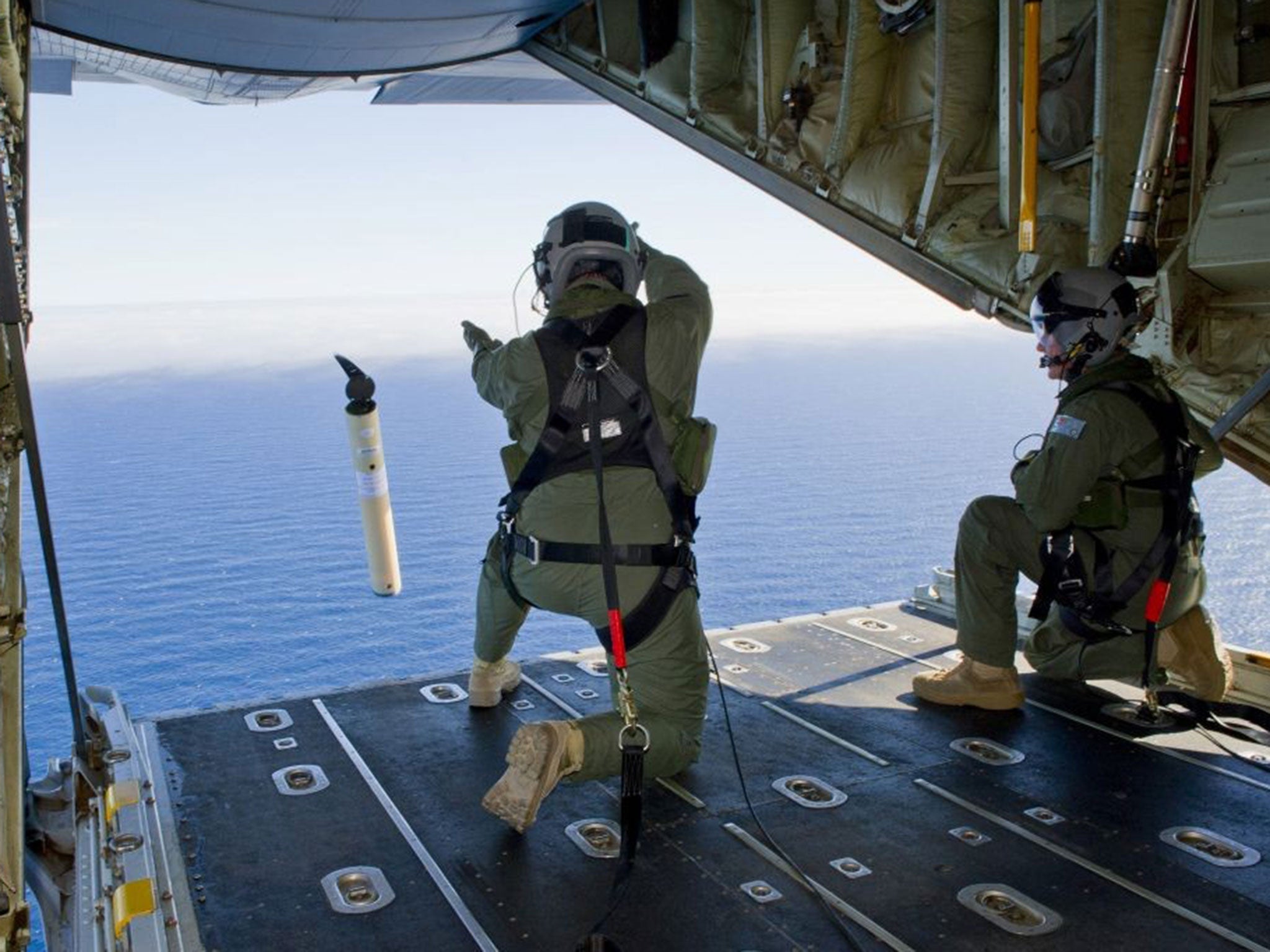Missing Malaysian Flight MH370: More objects spotted after search area moves 700 miles north
New data shows flight would have run out of fuel faster. Shift means that debris picked up by satellites believed to be from the flight was not the plane

Your support helps us to tell the story
From reproductive rights to climate change to Big Tech, The Independent is on the ground when the story is developing. Whether it's investigating the financials of Elon Musk's pro-Trump PAC or producing our latest documentary, 'The A Word', which shines a light on the American women fighting for reproductive rights, we know how important it is to parse out the facts from the messaging.
At such a critical moment in US history, we need reporters on the ground. Your donation allows us to keep sending journalists to speak to both sides of the story.
The Independent is trusted by Americans across the entire political spectrum. And unlike many other quality news outlets, we choose not to lock Americans out of our reporting and analysis with paywalls. We believe quality journalism should be available to everyone, paid for by those who can afford it.
Your support makes all the difference.A plane has spotted 'multiple objects' in the search for the stricken Malaysian airliner, Australian officials confirmed, after the hunt for missing Flight MH370 moved to a new part of the Indian Ocean, 700 miles north-east of the previous area.
Five out of 10 aircraft hunting for the stricken jetliner found objects of various colors floating in the ocean, the Australian Maritime Safety Authority (AMSA) said. It said it was not clear whether the objects were from the plane, and photos of them would be analysed overnight.
The AMSA said the objects included two that were blue and grey - among the colours of the missing airplane. A Chinese patrol ship in the area will attempt to locate the objects on Saturday, it said.
The search for the Malaysia Airlines jet was switched after a “new credible lead” from radar analysis suggested the plane flew faster and so ran out of fuel quicker than had been previously estimated, reducing the possible distance it travelled.
It means that the hundreds of floating objects detected over the last week by Japanese, Thai and French satellites, thought to be wreckage of the lost MH370 flight, were not in fact from the plane. No physical objects were located in searches and so no part of the aircraft has yet been discovered.
The new area which the search will now focus on is located around 1,150 miles west of Perth, Western Australia and covers about 198,000 sq miles. The ocean there is between 2,000m and 4,000m deep.
Four planes were in the area Friday and six ships were headed there, said John Young, manager of Australian Maritime Safety Authority emergency response division. “We have moved on” from the previous search area, he added.
“This is our best estimate of the area in which the aircraft is likely to have crashed into the ocean,” Martin Dolan, chief commissioner of the Australian Transport Safety Bureau, said at a news conference in Canberra. He said the new information was the “ most credible lead” to where any wreckage may be located.
The move closer to land means it will take planes less time to get to the site, allowing them to be search for longer. The site is also outside of the severe weather system which covered the previous search area, hampering the possibility of confirming the satellite images.
Mr Young dismissed questions suggesting that earlier searches had been a wasted effort, saying: “This is the normal business of search and rescue operations - that new information comes to light, refined analyses take you to a different place.”
Malaysia Airlines chief executive Ahmad Jauhari Yahya said in a statement on its website that the airline would make arrangements to take family members to Perth if wreckage was found.
He said: “The well-being and feelings of family members are and have always been close to our hearts and minds.
“Ever since the disappearance of Flight MH370, Malaysia Airlines' focus has been to comfort and support the families of those involved and support the multi-national search effort. We will continue to do this, while we also continue to support the work of the investigating authorities.”
Join our commenting forum
Join thought-provoking conversations, follow other Independent readers and see their replies
0Comments